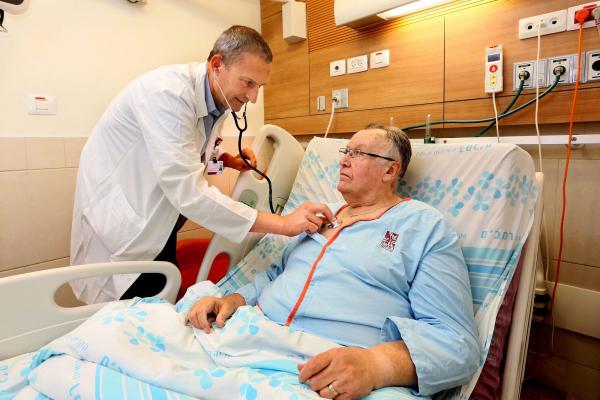
April 19, 2019 – Researchers at the Icahn School of Medicine at Mount Sinai have demonstrated that the recently developed antidiabetic drug empagliflozin can treat and reverse the progression of heart failure in non-diabetic animal models. Their study also shows that this drug can make the heart produce more energy and function more efficiently. The results were published in the April 23 issue of the Journal of the American College of Cardiology.1
“This drug could be a promising treatment for heart failure in both non-diabetic and diabetic patients,” said lead author Juan Badimon, M.D., professor of cardiology and director of the Atherothrombosis Research Unit at the Cardiovascular Institute at the Icahn School of Medicine at Mount Sinai. “Our research can lead to a potential application in humans, save lives and improve quality of life.”
Empagliflozin was approved by the U.S. Food and Drug Administration (FDA) in 2014. It limits renal sugar resorption and is the first drug in the history of type 2 diabetes proven to prolong survival. While diabetes patients are typically at higher risk of heart failure, past studies have suggested that those who take empagliflozin do not commonly develop heart failure. Those observations led a team of researchers to question if the drug contains a mechanism, independent of anti-diabetic activity, that is linked to heart failure prevention, and whether it could have the same impact on non-diabetics.
Investigators from the Atherothrombosis Research Unit tested the hypothesis by inducing heart failure in 14 non-diabetic pigs. For two months, they treated half of the animals with empagliflozin and the other group with a placebo. The team evaluated the pigs with cardiac magnetic resonance, 3-D echocardiography and invasive catheterization at three different points in the study (before inducing, one day after inducing and at the two-month mark). At two months, all animals in the group treated with empagliflozin experienced improved heart function. Specifically, those pigs had less water accumulation in the lungs (less pulmonary congestion, which is responsible for causing shortness of breath) and lower levels of biomarkers of heart failure. Importantly, the left ventricles had stronger contractions (enhanced systolic function), got smaller (less dilated) and were less thick (less hypertrophy), and the heart was a normal shape (less architectural remodeling).
The researchers also found that the drug addressed heart failure by improving cardiac metabolism. The hearts of pigs on the medication were consuming more fatty acids and ketone bodies (three related compounds — acetone, acetoacetic acid and beta-hydroxybutyric acid — produced during the metabolism of fats) and less glucose, as contrasted with heart failure patients (diabetic and non-diabetic), whose hearts consume more glucose and almost no fatty acids and produces less energy. This boost in metabolism helped the hearts produce more energy and function more strongly and efficiently.
“This study confirmed our hypothesis that empagliflozin is an incredibly effective treatment for heart failure and not only an antidiabetic drug. Moreover, this study demonstrated that empagliflozin is useful for heart failure independently of a patient’s diabetic status. Importantly, empagliflozin switches cardiac metabolism toward fatty acid and ketone body consumption, thus allowing the production of more energy in the heart,” explained co-lead author Carlos Santos-Gallego, M.D., postdoctoral fellow at the Icahn School of Medicine at Mount Sinai. “Empagliflozin may be a potentially effective treatment for heart failure patients. This is extremely important because heart failure is a disease with a mortality above 50 percent at five years. This study offers a new therapeutic strategy in heart failure, something badly needed given that there have not been new effective drugs for heart failure since the 1990s.”
The authors are currently studying whether empagliflozin is an effective heart failure treatment in non-diabetic human patients in the EMPATROPISM clinical trial.
For more information: www.onlinejacc.org
Reference


 February 03, 2026
February 03, 2026 









